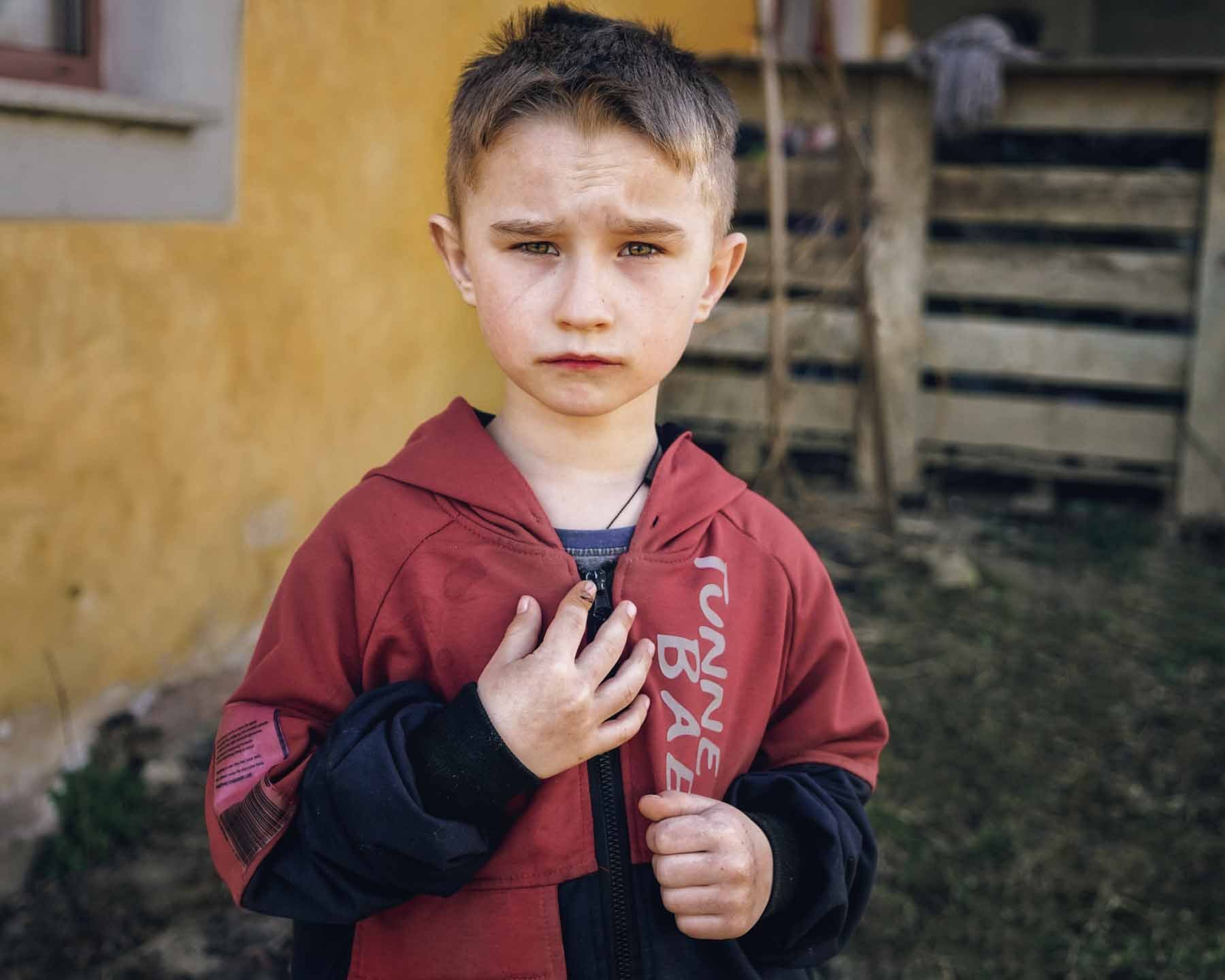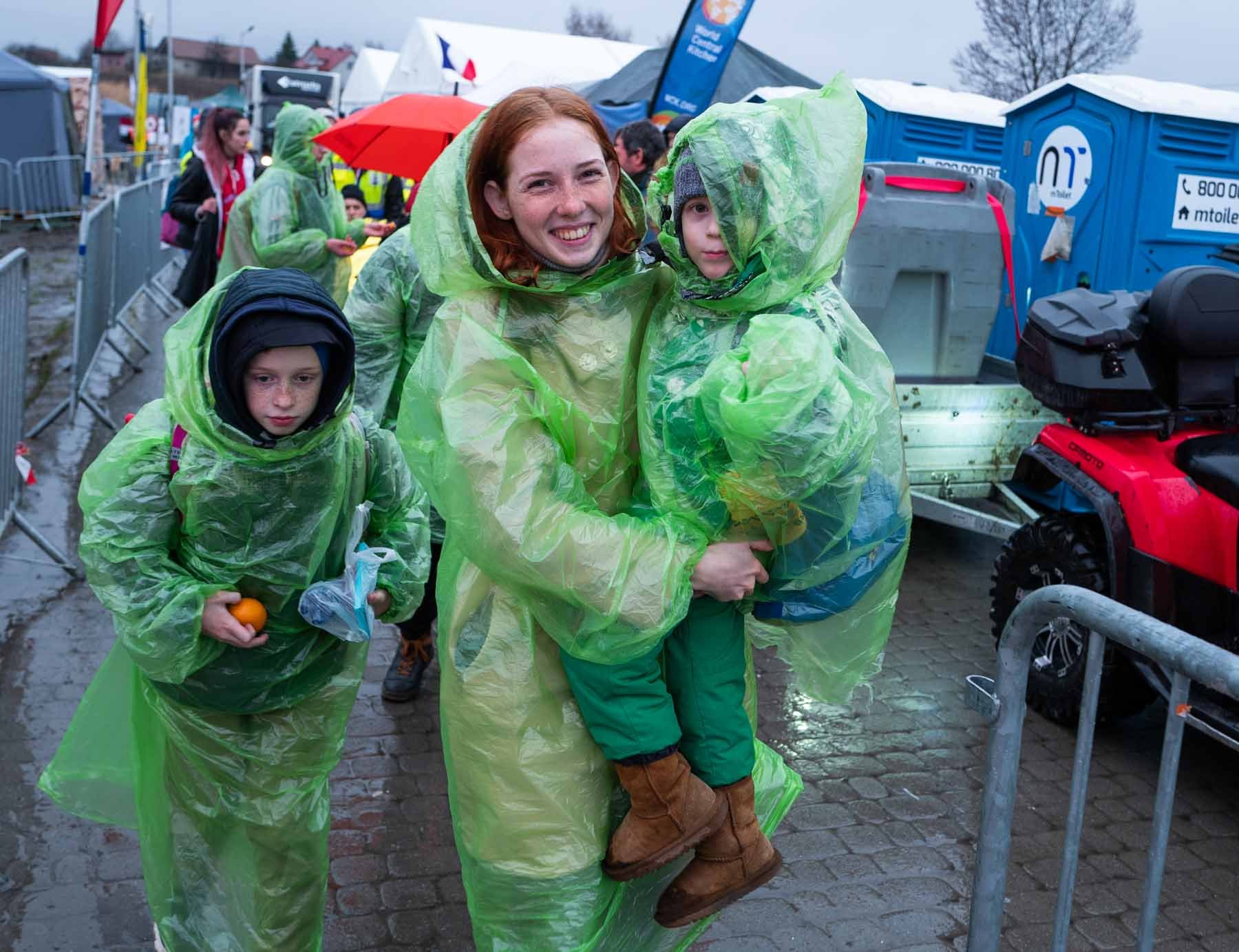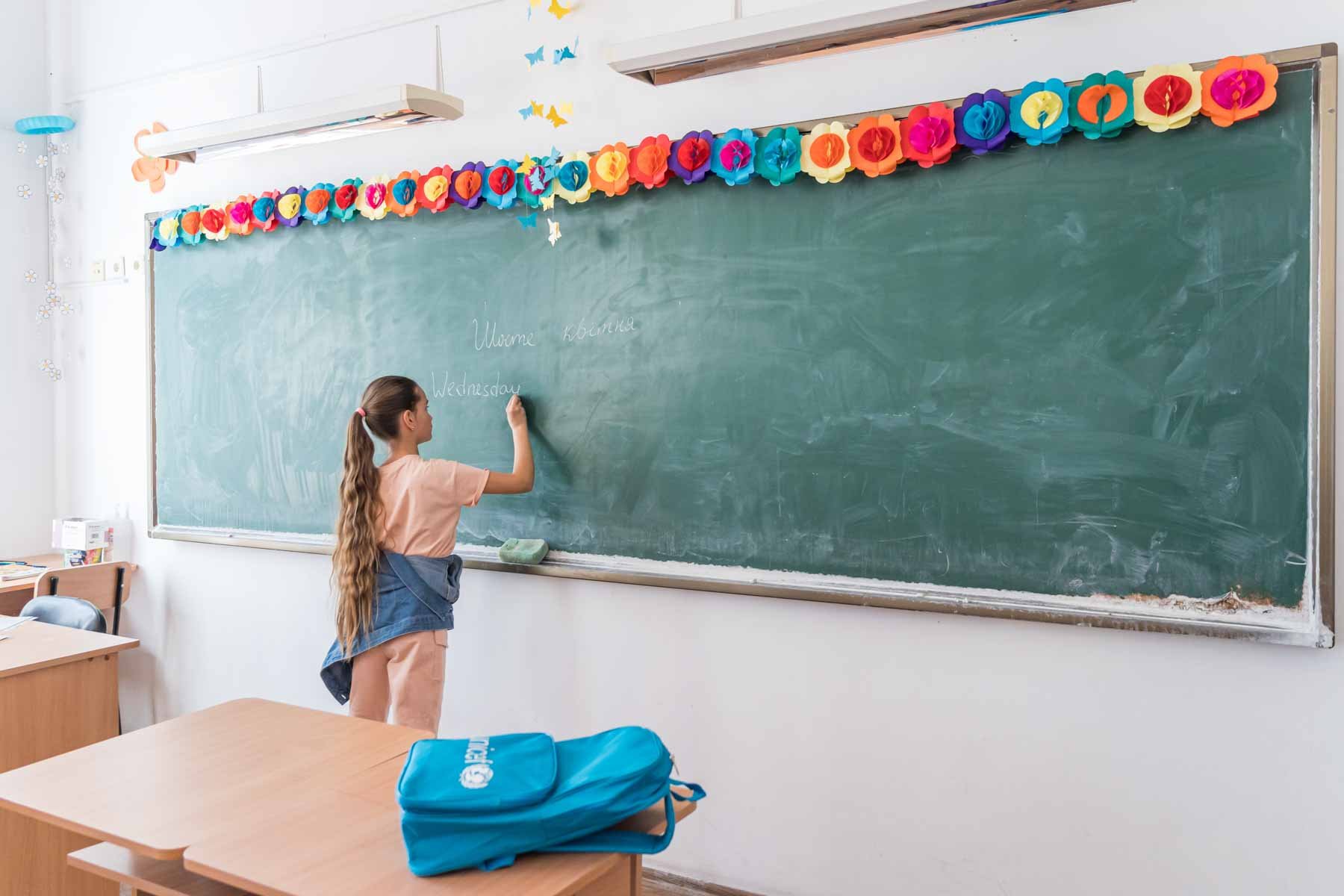Help UNICEF save lives in Ukraine
Photo: Olena Hrom. All images courtesy of UNICEF
War in Ukraine started at 5am on 24 February 2022, but for children living in the Popasna district of the Luhansk region, war has been a part of their life since 2014. Because of the renewal of military actions in eastern Ukraine, children were forced to flee their homes last February. Overall, one month of war in Ukraine has displaced 4.3 million children, more than half of the country's 7.5 million children.
UNICEF’s Humanitarian Action for Children Appeal provides education, health and protection services to Ukrainian families affected by war.
UNICEF’s Humanitarian Action for Children appeal is seeking donations in support of Ukrainian families affected by the war. It aims to provide families with access to clean water, delivery of vital medical supplies and the rollout of mobile child protection teams.
Since the Russian invasion began on 24 February, a representative for UNICEF estimated that over “2.5 million children have been internally displaced within Ukraine. The UN Office of the High Commissioner for Human Rights has documented that more than 100 children have been killed during the conflict and a further 134 children have been injured. Though the true toll is likely to be much higher.”
On the dangers that displaced women and children face, UNICEF Emergency Programmes Director Manuel Fontaine said: “Such unaccompanied children are at much higher risk of violence, abuse, exploitation and trafficking. Women face similar risks. We are extremely concerned by increasing reports of sexual violence and other forms of gender-based violence.”
And of the 3.2 million children who have remained at home, he added that “nearly half may be at risk of not having enough food. Attacks on water system infrastructure and power outages have left an estimated 1.4 million people without access to water in Ukraine. Another 4.6 million people have only limited access.”
Photo: Michal Korta
In Medyka, Poland, Luba, aged 20, carries her younger brother Fiodor (5), as their brother Siemon (10) walks close to them.
For those families trying to find refuge within Ukraine, it seems nowhere is safe, with reports of an increase in attacks on residential buildings, hospitals and schools in recent weeks.
The World Health Organisation (WHO) has verified that there have been more than 70 attacks on health facilities, including the shelling of a maternity hospital in Mariupol where a pregnant woman and her baby died.
In February an orphanage and a kindergarten were attacked. This is in addition to the 750 schools that have been forcibly closed since the Ukraine conflict began in 2014, jeopardising thousands of children’s education.
For families fleeing violence, safe passageways are also a target. The shelling of Kramatorsk train station on 8 April left 100 people injured and 50 dead, though that number is set to increase, according to Ukrainian officials.
Photo: Adrian Holerga
Yulia from UNICEF says goodbye to Kostya (7), his little brother George (2), his mother Zlata and his grandmother, who made the journey to Germany. They crossed the border in Isaccea and waited for friends to pick them up at a Blue Dot safe space.
Thousands of Ukrainian families—mainly women and children—were said to have been waiting to board trains at Kramatorsk to travel to safer regions in central and western Ukraine.
In March, UNICEF bolstered its support to the most vulnerable through its humanitarian cash transfer programme in aid of 52,000 Ukrainian families. As of 28 March, 1275 metric tons of emergency supplies are reported to have reached the country and surrounding borders.
UNICEF is also working with local governments in neighbouring countries and the United Nations High Commissioner for Refugees (UNHR) to create ‘Blue Dot’ safe spaces. ‘Blue Dots’ are information hubs that provide key information to travelling families and help to identify unaccompanied and separated children, ensuring their protection. Primarily helping women and children, they also offer psychosocial support, water and sanitation supplies.
Photo: Adrian Holerga
A new day of school in Romania for Sofiya, who fled the war in Ukraine in April. Her parents are still in Odessa, but she came to Bucharest to continue her studies in safety. Sofiya received a bag with school supplies from UNICEF containing notebooks, colored pencils and a painting pallete that will help her to continue her education.
While the charity’s efforts are making a positive impact, it’s important to note that the situation in Ukraine is likely to get worse before it gets better.
ALHAUS stands with UNICEF in its fight to protect families in Ukraine. The situation is urgent, with 7.5 million children needing our support. It’s imperative that children get access to clean water and sanitation, immunisation and health care, schooling and learning, psychosocial support and emergency cash assistance. Help UNICEF save lives by donating today.
Words by Olivia Woodhouse




